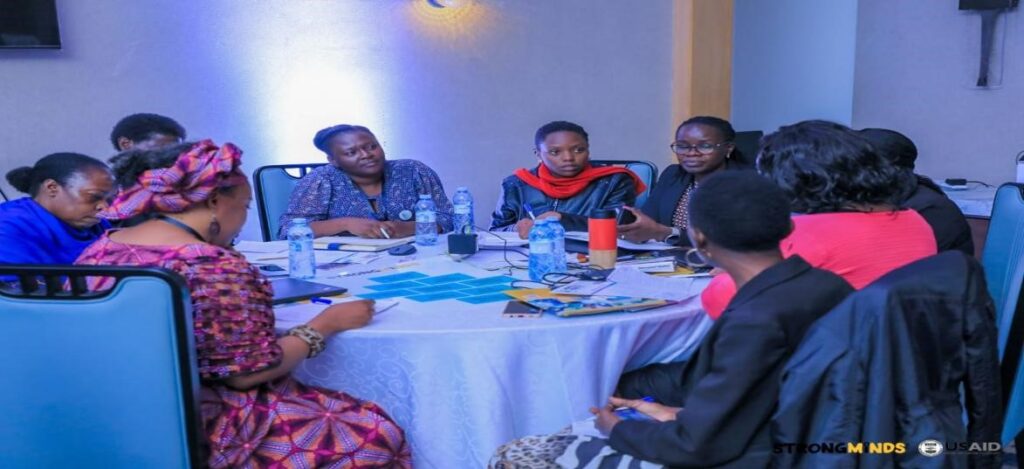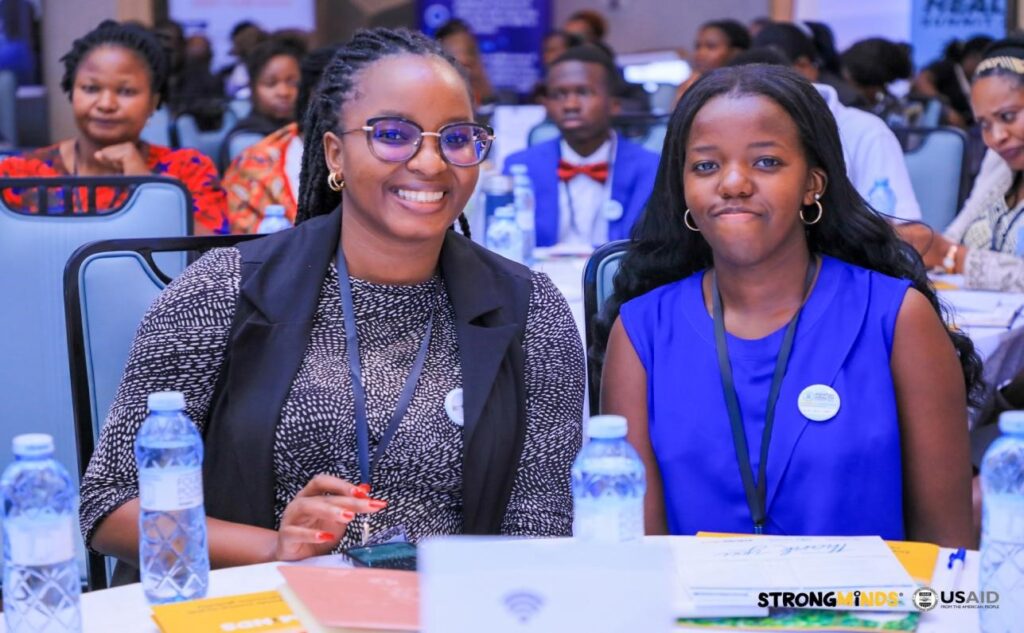Strong Minds, USAID and WHO organized an edutaining day and a half event themed, Integrating Mental Health Across all Sectors.
This article summarizes the events and discussions that took place at the Summit and the resulting recommendations for specific actions to be taken to advance mental health in the workplace at the individual, organizational, and policy levels.
For our Day 1, we swayed through a series of detailed presentations and talks from a range of elite speakers including but not limited to Volunteer led talk therapy models, Integration of our theme into the education sector and workplaces (Public and Private sector perspective).
Furthermore, Mental health in OVC programming, Mental health in refugee context and Integration in resilient livelihoods.
My personal favorite was a session that availed two strong ladies that shared their lived experiences on depression and life-changing situations after receiving therapy and help. Day one was concluded on a riveting note.
The second-half day of the summit was an all-hands-on-deck experience. It featured global policy perspective to Mental Health Integration by focusing on MLICs. Subsequent to it were ted style talks on Mental Health and Integration leveraging ICT and Tele-mental health service experience.
This was succeeded by Thematic Group activities that were divided in accordance with different sectors. Herein the diamond nine resolutions from each group were developed and presented. Cross sectoral work was assigned.

The aim of the Summit was to gather experts in mental and occupational health, drawing from various professional disciplines including corporate medicine, human resources, health promotion, academia, clinical practice, ICT, community health, insurance, and policy making.
The Summit was intended to bring together these representatives from multiple sectors, to inspire a “call to action” directed at the business community and its partners, urging them to exert their powerful influence on local, state, and national policymakers.
The working sector emphasized that while mental health problems exert a toll on all workers, they may especially affect knowledge workers whose mental acuity and creativity are key job requirements.
These workers face multiple personal and business challenges that include long hours and 24/7 availability even across the globe; speed to market pressures underscored by rapid technology advances; and balancing work and family obligations often encumbered by long commutes or feelings of isolation associated with telecommuting.
Integrating mental health education into the school curriculum can be an effective way to promote mental health awareness and education.
This can be done by including mental health topics in health classes, integrating mindfulness practices into daily routines, and providing opportunities for students to discuss mental health issues and concerns1. Additionally, recent national reform efforts in education and mental health provide a unique opportunity for re-examining models to better integrate learning and behavioral health.
Severe stress exposure is a key predictor of mental health, and civilian war trauma, torture, and forced migration rank among the most traumatic life experiences.
These experiences are pervasive in nations undergoing both internal and external conflicts. This, along with natural disasters sparked by climate change, political and religious persecution, discrimination, and human rights violations, has led to a high volume of forcibly displaced persons.
This event brought to light the essence of partnerships for various Mental Health Organizations. Hence this spurred a tremendous formation of social strategic networking.

The Heart to Heart Spaces team was well represented by Rita Auma (Founder), Pamela Natasha Bugembe (Relations Officer) and Namuli Lynette.

